
OR
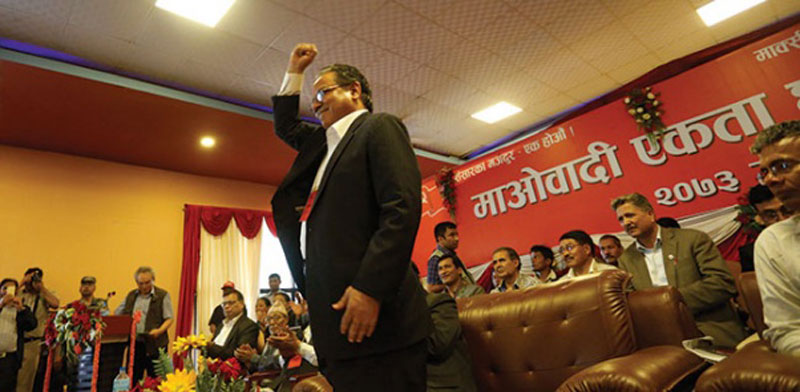
As parliamentary democracy stumbles, a new narrative for the next phase of the Maoist movement is rapidly taking shape
“Beware the Ides of March,” Shakespeare famously wrote in Julius Caesar. Some five centuries later, the iconic prophesy has an eerie relevance for Nepal.
Inspired by the allegory of “Ides of March”, I offer a prophesy for the New Year: within the next decade, Nepal will be a communist state with the Unified Communist Party of Nepal (Maoist) (or a derivative of its current form) in control of all levels of government. The constitution will be amended and we will have a Presidential system of governance.
First, a disclaimer and a word of caution: I’m no soothsayer.
Prophesies are always about the present even though they speak of the future. The most accurate prophesies are based on cues in the present. They must be understood in that context—as an illumination of the present as much as a portend of the future.
Last month, on March 13, Baburam Bhattarai, coordinator of Naya Shakti party, as well as former Prime Minister and former Vice-Chairman of UCPN (Maoist), staged a sit-in to demand a Presidential system of government.
Nepal’s new constitution includes a constitutional President, as is the case in India. Bhattarai wants Nepal to adopt a Presidential system based on a directly elected executive, as in the United States.
Following the sit-in, Bhattarai marched with his followers to meet Prime Minister Prachanda. They presented him with a petition containing a million signatures supporting the Presidential system.
In a statement released by his office, Prime Minister Prachanda said he was also in favor of a Presidential system. But he had been unable, he said, to win enough support for it. His party had registered a note of dissent on the point while finalizing the constitution and was committed to securing this provision in the future.
Having a Presidential system won’t be a minor adjustment in the current constitution. It would fundamentally alter the way the state is structured.
While with UCPN (Maoist), Bhattarai had served as president of the Constitution, Political Dialogue and Consensus Committee (CPDCC) in the Constituent Assembly (CA), the committee that drafted the constitution. The day after the CA approved the constitution, and after he had voted in its favor, Bhattarai resigned from the UCPN (Maoist) and the CA protesting the same constitution.
On March 13, the two men, Bhattarai and Prachanda, stood shoulder to shoulder. One had drafted the constitution as the president of CPDCC. The other had taken an oath as prime minister to implement and protect the constitution. That afternoon, the two men, former comrades and leaders of a brutal insurgency that saw 17,000 Nepalis lose their lives, denounced a key provision of the constitution and committed to a Presidential system of governance.
I’m no soothsayer but it shouldn’t take a soothsayer to believe there is something ominous in the Ides of March.
In a 2006 interview, Prachanda had clarified that his party’s commitment to democracy wasn’t only tactical. He welcomed “peaceful competition” within multi-party democracy; even though he clarified it didn’t mean “we have dropped that goal [of a People’s Democratic Republic] either.”
In the years that followed, the Maoists failed to navigate parliamentary politics well. Thus, within a year of taking over as the first prime minister of the Republic of Nepal in August 2008, Prachanda fell to the entanglements of parliamentary politics and had to step down.
But as parliamentary democracy stumbles, a new narrative for the next phase of the Maoist movement is rapidly taking shape. It is a narrative in three parts.
The first part involves the deconstruction of parliamentary politics. In public opinion, politics has been reduced to indulgence and self-interest. Parliament is regarded symbolically, largely as an instrument for gaining access to power and wealth in a zero-sum game. Competition is cut-throat, politics fragmented and hope rapidly fading.
The new Maoist narrative requires Nepal’s parliamentary democracy to be discredited. What could undermine parliament more than the fact that most CA members who voted for the constitution have publicly stated that they are opposed to its key provisions and regard it as no more than a framework of compromise?
Compromises shift as political winds change. Principles don’t. A constitution built on a framework of compromise—instead of a core set of underlying principles—is a transitory convenience until there is a different compromise, on a Presidential system for example.
The second part of the narrative involves the Kathmandu elites. The instruments of Nepal’s economy and the state are controlled tightly by a network of Kathmandu elites. Control of the state is impossible without managing this network.
This is where the Maoists faltered. The inability to navigate parliamentary politics reflected, in part, in the failure to manage Kathmandu’s elite network.
Thus far the Maoist narrative has failed to resonate in Kathmandu. But to proceed further, they will need to win Kathmandu over, not with guns but with reason and sentiments. Enter Bhattarai and his Naya Shakti. His rhetoric skillfully blends soft nationalism and right-leaning economic policy, all in a tone of haughty intellectualism. It is alluring to entrenched Kathmandu interests who sense an opportunity to reassert themselves and regain leadership roles against the in-rush of new forces.
The third part of the narrative relates to elements that remain outside the state. In 2012, many factions split away from the mother UCPN (Maoist) and established parallel parties. Some of them reunited last June and the UCPN (Maoist) changed its name to the Communist Party of Nepal (Maoist-Center). But several, including key former party ideologue like Mohan Baidya, continue to remain outside, firm in their belief that parliamentary system alone cannot deliver on the broader promise of the People’s Democratic Republic.
The three-pronged approach—from inside and outside the parliamentary system and with the endorsement of the country’s elite—represents the evolving Maoist strategy. The narrative will fully mature when the parliamentary system will have been discredited; when old elites will be enamored by the prospect of stable leadership in a Presidential system; and when disenfranchised masses, frustrated by the repeated failure to have their concerns addressed, will welcome a more decisive system that promises greater empowerment.
Whether by accident or design, the convergence of the Maoist trinity is now fated. But what happens to the pro-democratic parties as the Maoist trinity converge, you ask?
The new Maoist narrative is only taking shape because pro-democratic forces are enabling it. Kamal Thapa is busy riling against the very constitution that he helped promulgate. Sher Bahadur Deuba is busy playing the kingmaker, pitting interest against interest. KP Oli is as busy rousing the hills against the plains with the bogey of foreign interference. The Madheshis are unclear what they want and have engaged in a dangerous game of brinkmanship.
The narrow self-interest and polarizing politics of the pro-democratic forces has disillusioned citizens, stalled progress, and created uncertainty and instability. It is providing a fertile ground for the new Maoist narrative to take root.
So, what of the pro-democratic parties as the Maoist trinity converge, you again ask?
When there is a victor, there will be a vanquished.
Bishal_thapa@hotmail.com
You May Like This

Maoist Center Chair Dahal and UK Minister of State hold meeting
KATHMANDU, Feb 13: CPN (Maoist Center) Chair Pushpa Kamal Dahal has urged the UK Minister of State for Armed Forces, Mark... Read More...
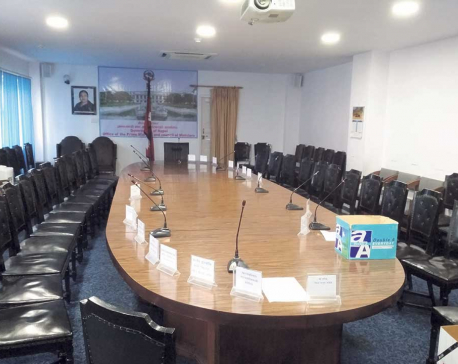
Maoist ministers enjoy state perks but avoid Singha Durbar
KATHMANDU, Dec 28: Ministers representing the CPN (Maoist Center) have stopped going to office after they were rendered without portfolio on... Read More...
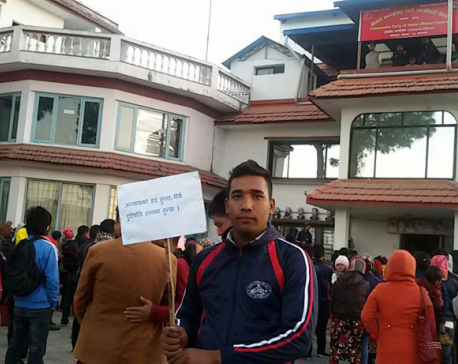
Discharged Maoist combatants stage protest at Maoist party office
KATHMANDU, Nov 7: Former Maoist combatants discharged by United Nations mission have picketed Parisdanda, the headquarters of ruling CPN (Maoist... Read More...




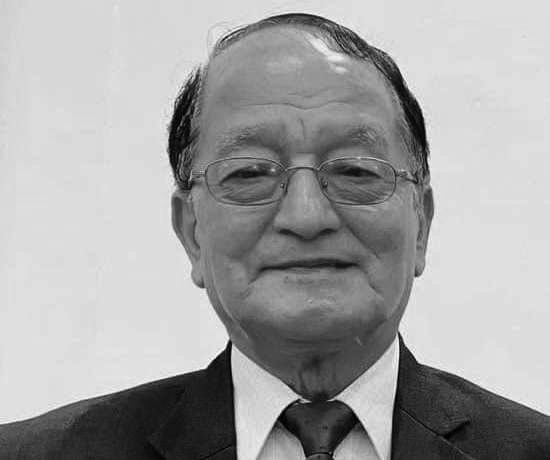
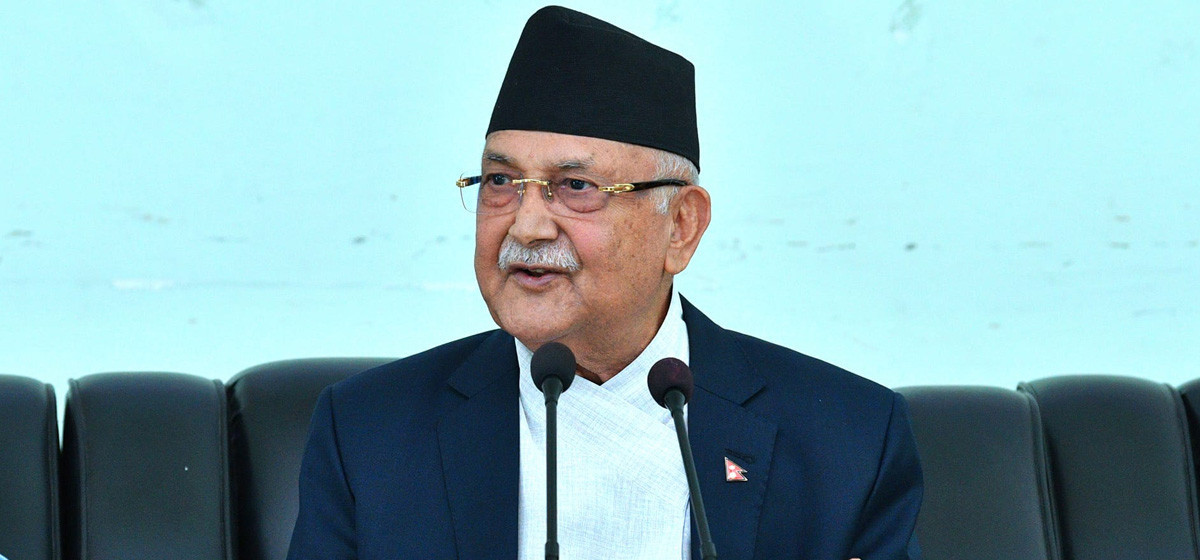

Just In
- NC objects Gandaki Province assembly call
- Eight Chinese citizens injured in Scorpio-microbus collision in Pokhara
- Former chief secretary Shakya passes away
- UML Chair Oli appeals vote for Nembang
- APF seizes illegally imported 152 sacks of onions and 32 units of mobile phones from Dhansuha
- 80 civil servants left in the lurch as MoFAGA places them in reserve pool
- Weather Alert: Storm likely in Lumbini and Sudurpaschim
- NOC investing Rs 3 billion to construct fuel storage plants of over 9,000 kl capacities in Bhairahawa






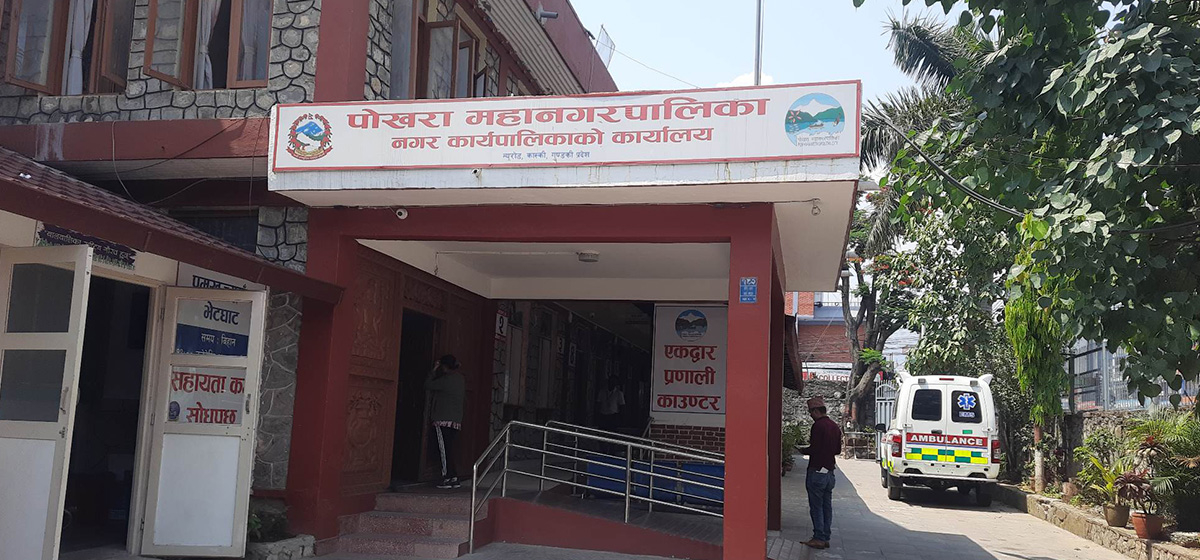
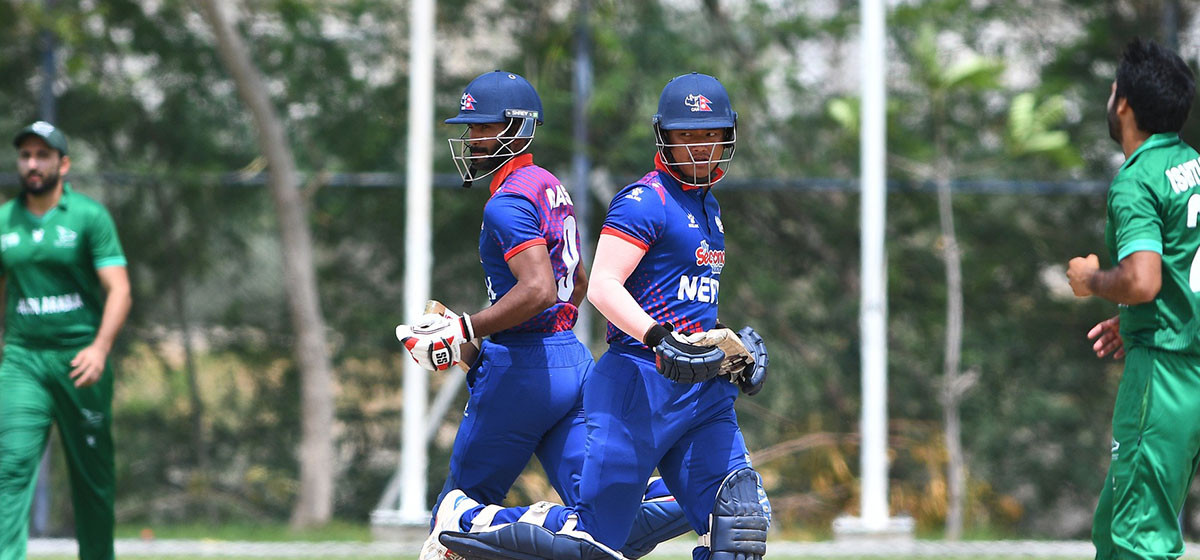

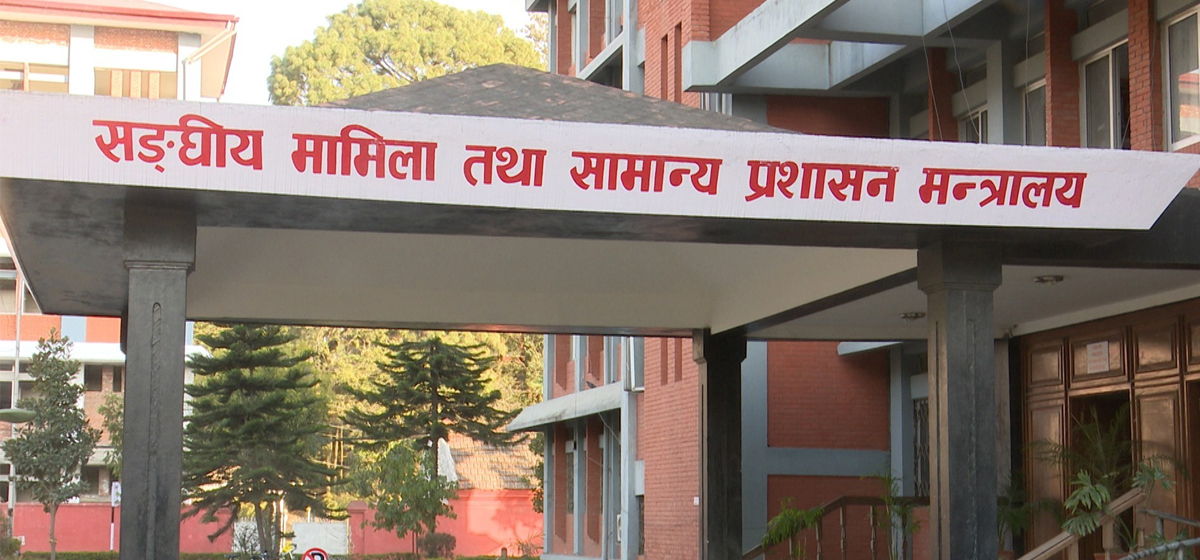


Leave A Comment